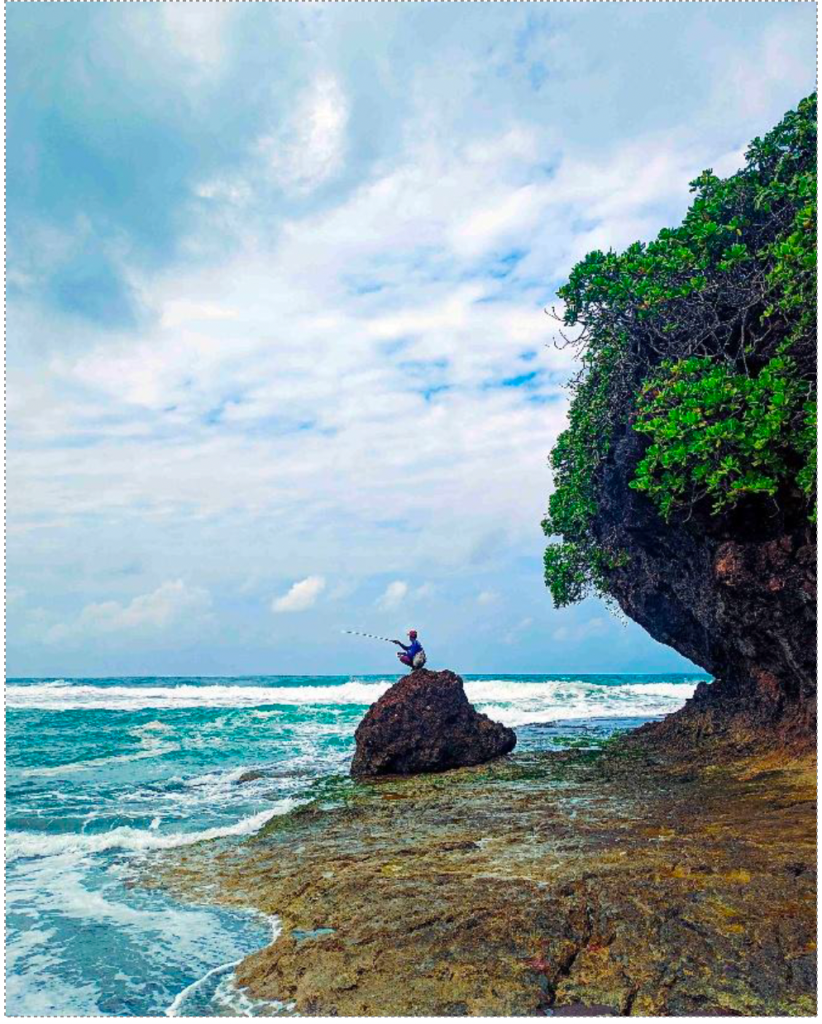The ‘Art and Stewardship of the Ocean’ e-course joins the UNCC: Learn platform as it hits 1M users

The Art and Stewardship of the Ocean e-course developed by the Hub in collaboration with UNITAR joins the UNCC: Learn platform as it hits 1 million users!

It has only been a few short months since the Art and Stewardship of the Ocean e-course was launched on the UN Climate Change Learning Partnership (UN CC: Learn) platform, but there is already much to be celebrated: the UN CC: Learn has recently reached one million subscribers, and the e-course has recently celebrated the first generation of e-graduates.
Developed through a fruitful collaboration between the Hub and the UN Institute for Training and Research (UNITAR) the e-course addresses the urgent matters in the relationships between the ocean and the humankind. It particularly heeds to the power of the art in all its forms, particularly the Indigenous coastal art is often the only vessel for preserving the traditional, local, Indigenous coastal communities’ various and diverse ways of knowing the ocean. It offers a unique exploration of art’s transformative potential in ocean governance. Bringing together artists, researchers, Indigenous communities, ocean advocates, and policymakers, the course examines how artistic creation can bridge divides and inspire innovative solutions to the triple-planetary crisis.
The e-course is intimately connected with the knowledge sharing platform One ocean Learn , as the learners are invited, if they so wish, to share a piece of art- be it a few lines of text, a voice clip, photograph, a drawing, a painting et cetera, and the artworks are curated into the online exhibition on the One Ocean Learn.
Below are the beautiful words of one of the first- e-course alumni, Gilang Raga Gumilang Sukhma who shared a beautiful photo story as part of his course. Make sure to check out Gilang’s exhibition photo-story here!

‘A Dance of dreams and waves’
Photo: Gilang Raga Gumilang Sukhma
“Art has the unique power to transcend boundaries and communicate the urgency of ocean conservation in a way that science cannot. Artists around the world capture the beauty, fragility and resilience of the ocean through their work, raising awareness of its importance. Whether through painting, music, poems, photography, or performance, these creative expressions ignite emotional connections and inspire action.
But it also highlights an important, often overlooked, aspect: the inclusion of indigenous peoples in ocean governance. For centuries, these communities have maintained a deep connection to the ocean, guided by ancestral knowledge and sustainable practices. Their voices carry invaluable wisdom and offer insights that are often overlooked in modern policymaking. Incorporating their perspectives into local, national, and international policies is not only the ethical thing to do – it is critical to achieving true sustainability.
Art and culture are the lifeblood of our shared relationship with the ocean, weaving together stories of heritage, resilience and hope. By protecting these cultural expressions and embracing the wisdom of indigenous peoples, we protect not only the health of our oceans, but also the rich foundation of our human connection to nature.
This learning experience from One Ocean Hub, One Ocean Learn UN CC:Learn and United Nations Institute for Training and Research (UNITAR) has inspired me to advocate for policies that celebrate the synergy of art, indigenous wisdom, and science in creating sustainable solutions for the ocean’s future. Together, we can ensure that the stories of the ocean continue to inspire and sustain life on Earth.
This time, I’m using photography to advocate for ocean conservation, and one of the photos I took is below. It tells the story of a fisherman who depends on the ocean for his livelihood.”
Related SDGs: